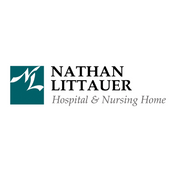What to Know About High Blood Pressure

Heart disease and cardiovascular issues are leading causes of death around the globe. Many factors contribute to these complications, with high blood pressure being the most prominent. Working with a cardiologist and making significant lifestyle changes is the only way to reverse the effects of high blood pressure. If you’re ready to take control of your blood pressure, familiarize yourself with the following information.
Your Guide to High Blood Pressure
What Is It?
High blood pressure is a condition where your heart faces resistance when pumping blood. This is often due to narrow arteries. It’s a slow-developing condition that may not manifest any symptoms for years, and it increases your risk of heart attack and stroke, among other health problems. Luckily, it can be easily detected and addressed with the help of a cardiologist.
Blood pressure is typically measured using two numbers: systolic blood pressure (the pressure in your blood vessels when your heart beats) and diastolic blood pressure (the pressure in your blood vessels as your heart rests between each beat). According to the American Heart Association, a healthy blood pressure measurement is 120/80 or lower. Elevated blood pressure is between 120-129 and less than 80. A measurement in the range of 130-139/80-90 is indicative of the first stage of high blood pressure.
Symptoms
 High blood pressure can be detected at a routine doctor’s appointment, which is why it’s important to schedule regular checkups. Common side effects include headache, vomiting, dizziness, blurred vision, nosebleeds, breathlessness, and heart palpitations. If your doctor detects high blood pressure, they might refer you to a cardiologist. When untreated, high blood pressure can cause brain and memory problems, kidney disease, blood clots, heart failure, or stroke. If your high blood pressure requires more specialized care, a cardiologist will be able to provide you with the treatment you need.
High blood pressure can be detected at a routine doctor’s appointment, which is why it’s important to schedule regular checkups. Common side effects include headache, vomiting, dizziness, blurred vision, nosebleeds, breathlessness, and heart palpitations. If your doctor detects high blood pressure, they might refer you to a cardiologist. When untreated, high blood pressure can cause brain and memory problems, kidney disease, blood clots, heart failure, or stroke. If your high blood pressure requires more specialized care, a cardiologist will be able to provide you with the treatment you need.
Prevent High Blood Pressure
According to the American Heart Association guidelines to preventing high blood pressure, diet and exercise are musts. You should get at least 30 minutes of exercise three to four times each week and aim to maintain a healthy weight. Reducing salt intake and emphasizing fruits, vegetables, nuts, and low-fat dairy in your diet is also beneficial. Get at least eight hours of sleep every night and stay on top of visits to your doctor or cardiologist. If you show symptoms, they’ll advise you on lifestyle changes or possibly prescribe medication to lower your blood pressure.
If you or an aging loved one needs assistance or medical care, the team at Nathan Littauer Hospital & Nursing Home can help. Based in Gloversville, NY, this full-service health facility features cardiologist services, pediatric and geriatric care, OB-GYN services, and adult medicine. You can explore each of these services further on their website. If you’re ready to schedule a checkup, call (518) 725-8621. Follow them on Facebook for news and updates.
About the Business
(149 reviews)
Have a question? Ask the experts!
Send your question

